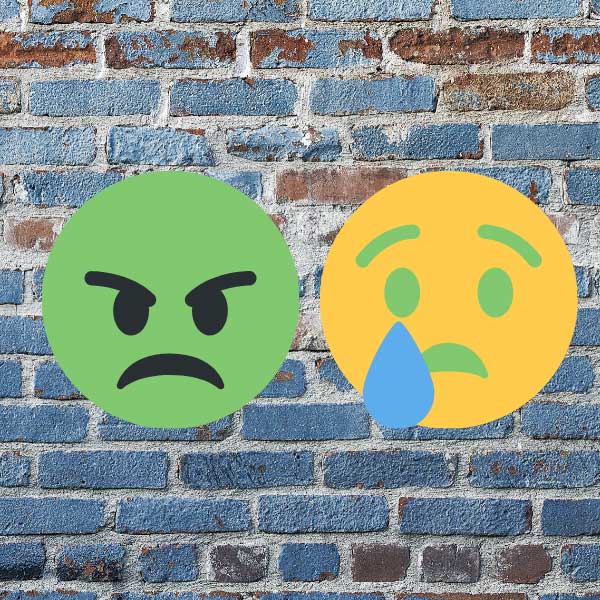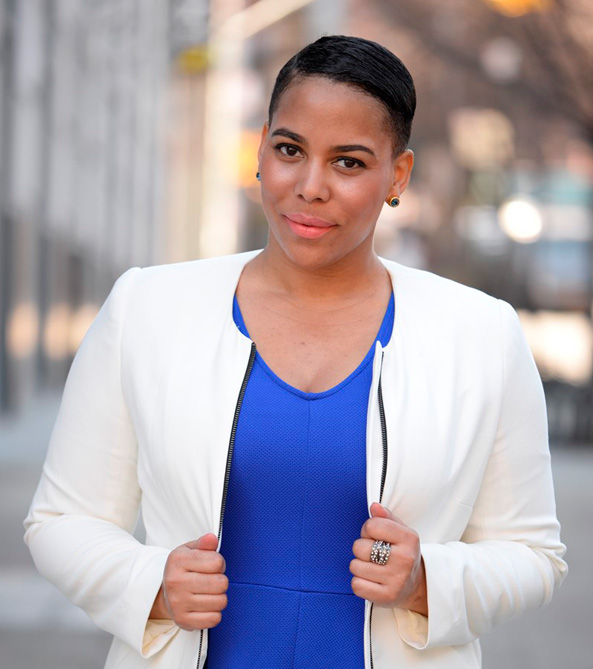
Friends, I’ve seen your posts and comments on Facebook and Instagram. There is a lot of justifiable rage being expressed by jewelers whose stores have been looted and severely damaged as part of this incendiary moment in history.
Members of the jewelry community are also grieving the senseless death of George Floyd, while grappling with how they might help to dismantle the systemic racism that brought us to this very uncomfortable and painful situation in the first place.
Asha Tarry—an award-winning community mental health advocate, psychotherapist, and certified life coach—recently reached out to me to discuss a story on COVID-19-related anxiety and PTSD. Instead, I thought our community could benefit from her advice on how to heal and work through the feelings described above. Tarry’s work is focused on helping people be more emotionally empowered and mentally resilient.

The first thing I asked Tarry was how to reconcile feeling several, at times conflicting, emotions at once—the ambivalence my colleague Emili Vesilind noted in her recent editorial on this very subject.
“Compounded grief may be what one or many are going through, and all of it has its rightful place,” says Tarry. “At the same time, it’s not necessarily adequate or fair to associate loss of life with loss or damage to property. They’re incomparable.
“Can human beings feel more than one way at a time? Absolutely, we can. As we see and feel the pain and sadness of what’s occurring in our society, we must also take a step back and be critical in our analysis of what’s going on. When we are more inclined to dialogue with those who’ve hurt us, we should [do so]. But, it can only occur when both parties are at peace, not at odds.”
Here’s more from our conversation.
What does the healing process look like for a jewelry retailer who has been victimized by looting?
It’s OK to acknowledge the betrayal and pain that [they’re] going through. It’s OK to say what you feel as long as you recognize the stake in speaking up. Ask yourself, “Will this help me or anyone else if I say how I feel to people who hurt me?” That may be worth examining. Will that be at a local community gathering? Will that happen during recovery and rebuilding? Will that occur through letter writing or a notice that one may share in the community? I would look at all of this, take time with it, and do it with the support of people you trust who are also logical and not invested emotionally in what’s occurred. It’s painful to be on either side of this right now.
People experience grief in an array of ways. Some people may go from sadness to depression, to rage over time, or [land there] right away. Some people may experience hopelessness or despair for prolonged periods. Some may find that working this out through their religious and spiritual beliefs help. When people are victimized, trust may be fragile during recovery so it’s important [to] work on engaging within spaces that they feel [supported in]. That could look like asking for help emotionally or physically [as they] begin repairing their property [from] people [they] trust. That may [also] include working on their spiritual practices to help them to forgive.
What does the healing process look like for those in the jewelry industry who are mourning George Floyd’s death? They haven’t lost property or inventory but maybe are losing faith in humanity. They might be embroiled in a complex stew of bewilderment, outrage, incredible sadness, and disgust. And struggling with white privilege for those of us who are white. How do we get past this?
I believe that we all are going to have to examine our fragility and tolerance. Ask yourself, “What have I been tolerating in my relationships with people who look like me?” Ask yourself, “How many times have I thought about or treated someone with less regard or made assumptions about them based on their appearance, where they come from, their race, or the way that they speak?” Ask yourself hard questions about the privileges of engaging in anything that does not allow for there to be difference and equity. This should be a lifelong journey, and it should include active learning with reading books and articles and watching shows—not from people you’re comfortable with, but instead with people who are actively unpacking their racist thinking and behaviors. It should occur with people who have been repeatedly victimized too. Just as we have not been having difficult conversations for many years, we each are responsible for beginning the work on our own.
Top: It’s a time of mixed emotions for many in the jewelry industry, and the advice and insights from a professional may help. Asha Tarry’s work has been conducted in marginalized communities with survivors of intergenerational trauma as well as with professionals in search of a fulfilling life. Her forthcoming book is titled Adulting as a Millennial: A Guide to Everything Your Parents Didn’t Teach You (image via Canva).
Follow me on Instagram: @aelliott718
- Subscribe to the JCK News Daily
- Subscribe to the JCK Special Report
- Follow JCK on Instagram: @jckmagazine
- Follow JCK on X: @jckmagazine
- Follow JCK on Facebook: @jckmagazine